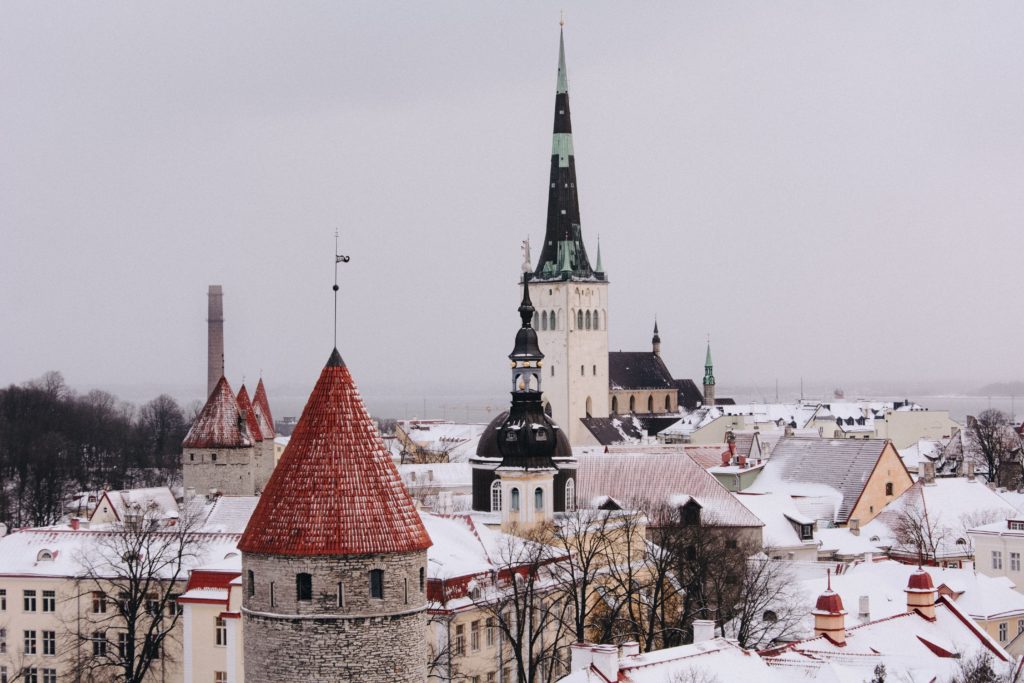Estonia is a full member of the European Union and hence having an Estonian passport opens the gateways to all the EU and the EEA countries. Estonian passport is powerful as the bearer can travel to more than 170 countries without a visa. The citizenship of Estonia too is highly respected in the developed world and opens doors to thousands of employment and business opportunities internationally.

The guiding principle for citizenship in Estonia is jus sanguinis (the law of blood). Under this principle, citizenship is passed on to children from parents and so on. Another way to become an Estonian citizen is through naturalization after living a certain number of years in the country.
Process for obtaining an Estonian passport
The department that issues and processes passport applications in Estonia is the Border Guard Board. Documents needed to apply for the passport are as under:
- Duly filled application form
- Proof of Estonian citizenship
- Estonian Identity card (permit)
- Birth certificates (applicant, parents,) if citizenship is granted through descent
- Recent photographs
- Receipt/certificate of the paid state fee
Process for obtaining Estonian Citizenship
Depending on the aspirant’s situation and circumstances, there are three ways to obtain an Estonian passport, in all cases, one must first obtain citizenship before he/she can apply for an Estonian passport.
The ways an aspirant can get citizenship are listed below:
- Naturalization
- Descent
- Marriage
- Investment
It is noteworthy that the Estonian nationality law does not recognize birthright citizenship. Meaning a child born to a non-citizen couple within Estonia does not become a citizen by birth; an exemption in some very rare cases does apply as per international laws.
Citizenship by descent
In case one of the parents of the applicant is or was an Estonian citizen at the time he/she was born – whether in Estonia or abroad – the applicant becomes a citizen of Estonia by the principle of the law of blood. The right to citizenship by descent can be reclaimed if the parents had surrendered the citizenship of the applicant before he/she turned 18.
Citizenship through naturalization
To qualify for the naturalization, process the applicant must have legally stayed in the country for at least 8 years continuously. Other requirements to enter the naturalization process are listed below:
- Applicant must be above 15 years of age
- Applicant must have lived in Estonia legally for at least 8 years under a residence permit
- Five years during the 8 years must be under permanent residency status
- Succeed in the Estonian language exam managed by the Innove Foundation, or have had qualifying education in Estonia
- Proof of sufficient financial means to support decent livelihood as per the Estonian standards
- A registered address in the Population Register of Estonia
- Pledge of allegiance to the new home country
Citizenship by marriage
If either spouse is a citizen or permanent resident makes the other one eligible to acquire citizenship. Marrying an Estonian citizen gives the non-citizen spouse a permanent residency status for 5 years initially under the Estonian immigration law. This status can further be extended to 3 more years. Once the required residency period, the non-citizen spouse must stay another 2 consecutive years to qualify to enter the naturalization process.
Citizenship by investment
Estonia does not offer a direct investment citizenship program to foreigners; however, there is another program that investors can adopt to fast-track citizenship. The Estonian Residence by Investment (RBI) program is for those who meet the minimum investment criteria and are willing to invest in Estonia. The program provides a 5-year renewable residency status which can be converted into citizenship by naturalization by staying the remaining qualifying years in the country.
Documents required to apply for Estonian Citizenship
Physical presence is compulsory while applying for citizenship. An appointment for an interview at the Services Office must be secured before applying. Primarily, the Estonian Border Guard Police are responsible for the process while at some stage other departments may overlap.
The applicant should consult an agent to prepare all the documents, as the requirements may change from time to time. The below-listed documents should be made handy.
- Prescribed application form duly filled in the Estonian language
- Income statement (for the past 6 consecutive months)
- Photographs (digital)
- Certified proof that the applicant has abandoned their previous nationality
- Estonian language test clearance certificate
- Assessment of applicant’s knowledge of Estonian constitution and citizenship Act
Dual Nationality
The Republic of Estonia does not allow dual citizenship/nationality. Meaning that the applicants have to officially give up their previous nationality before applying for Estonian citizenship.



